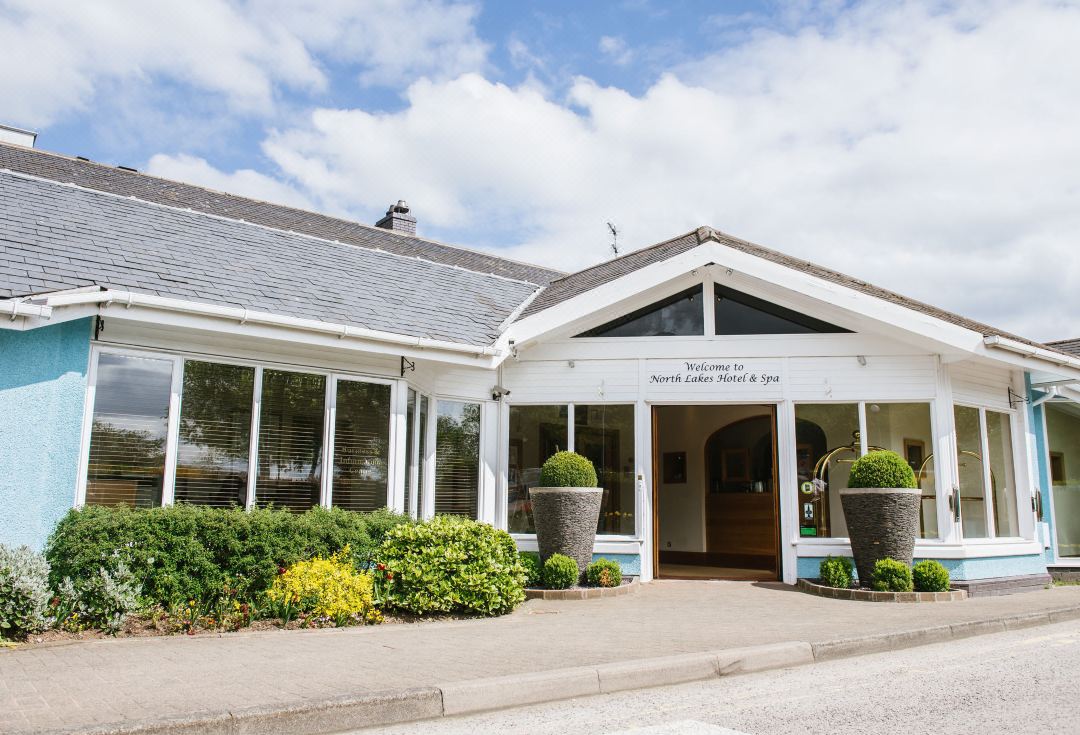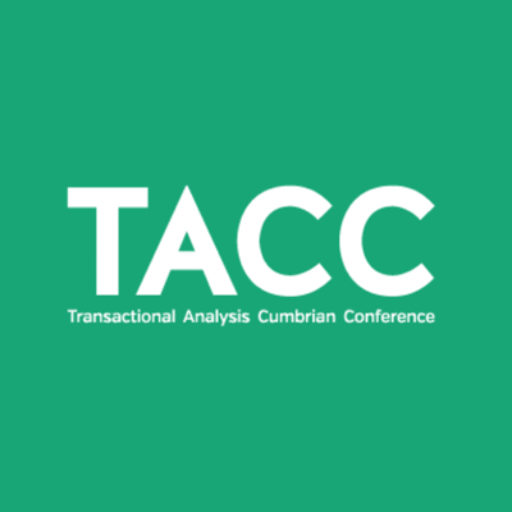Transactional Analysis Cumbrian Conference – Saturday, 22 February 2025
In Person Programme
In 2025, we are running two conferences concurrently. The workshops below are held in person at the North Lakes Hotel and Spa. After you have booked your place, we will email confirmation and full joining instructions nearer the conference time.
North Lakes Hotel and Spa
Ullswater Road,
Penrith,
Cumbria,
CA118QT,
United Kingdom

MORNING WORKSHOP SESSION – IN PERSON CONFERENCE
Click on the presenters name and workshop title for more information
Claire Bowers - Gaming in the Therapy Room: From Artificial to Authentic Intimacy
For many clients, online and role play gaming are key ways of playing and forming relationships. Although Berne believed that play created an intimate therapeutic relationship, online relationships can be seen as an artificial form of intimacy.
I believe exploring and creating a shared language around such clients’ gaming worlds is essential to building and deepening the therapeutic relationship, gaining insight into their internal worlds.
For this, we need to learn a new language that we potentially don’t speak – that of gaming .
Andy Williams - The Post-Truth Era's Emergence in the Therapeutic Space
We will thoroughly examine Lacan’s “Four Discourses” and their relevance to the psychotherapy setting in 2025. We will delve into their significance and relationship with truth, power, and authority. Additionally, we will scrutinize the implications of the Post-Truth Era on psychotherapy practice and equip therapists with practical tools to adeptly navigate discourse structures in therapeutic settings.
Some pivotal questions we will tackle include:
– How does the pervasive spread of disinformation impact our clients’ contemporary lives?
– What are our thoughts on the erosion of the authority of knowledge in this post-truth era?
– Where do we identify the challenge to power and authority, and what utility or threat does this hold?
– How can we skillfully guide our clients through a world of conflicting truths?
This workshop will be a journey with a departure point of Post-Truth Era philosophy. Through exploration and input, it will terminate at practical applications
Bev Gibbons and Nicole Lenner - Warm fuzzies in the virtual world - Contrasting stroke and virtual economy
In our daily work as psychotherapists and counsellors we are increasingly confronted with cases of “phone addiction” and linked difficulties people have to find and foster lasting friendships. This seems more and more obviously linked to the virtual worlds we wander. Can he existential need for contact and recognition will not be met here?
In this workshop we will explore the quality and impact of virtual strokes and in person with you; those received via emojis in the cyberspace and those received in the face to face intersubjective space in the here and now.
One focus we may ponder on together the relational ‘third’ that we co-create in every encounter– and we’ll question the quality of cyberspaces as this third.
To round our discussion up we will invite you into what Claude Steiner called “Stroke City” – an exercise that creates an experience of real time stroking.
Kate Hardy - The Limitless Space Between us: Revisiting the Disinhibition Effect
The online world is sometimes seen as a risky place where minds exist without bodies, identities and ‘facts’ can be manufactured at will, and transgressive acts take place seemingly without consequence. Twenty years ago, Suler (2004) proposed that online relationships are characterised by anonymity, dissociation and acting out – in TA terms, a Petri dish for pathological Script. He called this the ‘Disinhibition Effect’ and it is still regularly referenced in therapeutic training. This workshop will explore what has been learned since 2004 and propose that in the world of online therapy which is emerging, we need a more sophisticated, nuanced and perhaps more positive approach. Participants will be encouraged to review their own experience in this new ‘proximal zone’.
Mary Cox (AKA Thompson) - I am alive and you are dead. Living with irrevocable loss.
Living with irrevocable loss. In September 2023 my husband, Ron Thompson, died. I want first to speak personally about this immeasurable loss. Then I want to present some of what I have learned from being widowed, both about myself, and about how I am learning to live with this loss. I will use TA concepts such as regression and script work, and hunger for strokes, stimuli, and structure. I will include ideas from Ronen Stilmen’s work on the rich potentials of digital relationship.
Katie Sands - Understanding Adoptees' Attachment Styles Through TA
The workshop aims to help participants deepen their understanding of how attachment styles impact adoptees’ life scripts, transactions, and ego states through the use of case studies and reflective journaling exercises. Participants will explore how attachment experiences influence an adoptee’s internal dialogue and interactions, identifying how these dynamics play out in therapy sessions. I will share personal examples from my own therapeutic work, illustrating how attachment styles emerge in the therapeutic relationship and affect the client’s journey toward self-awareness and growth. This interactive approach encourages participants to connect theory with practice, fostering an empathetic and informed approach when working with adoptees as well as wandering through their own attachment experiences.
Matt Haworth - Using AI as a creative artificial third with clients: Practicalities and ethics
The risk human therapists could be replaced by AI has been much discussed, but what introducing AI as an “artificial third” could add to the existing, human-to-human therapeutic relationship is much less explored.
AI can produce rich and evocative images, text, and music in moments. These can illustrate client’s inner worlds and the frequently unexpected results stimulate new insights and open up the view to new options.
This is a practical workshop on using AI with clients, including which tools and prompts get the best results for therapy, and its ethical implications. You don’t need to be techie or have AI experience to join in.
Lyn Wall - Debunking Generative Artificial Intelligence
How can it be generative given that it consumes what it is trained on and produces an amalgamation of what it has learned, meaning it often distils and reproduces societal biases and global inequality and increases marginalisation?
In this workshop, we will explore the prejudices and dehumanisation of Autistic People through artificially generated images and text.
A conversational space considering who we are, how AI constructs us, what it can teach us about social rhetoric and discourse, and how we sharpen our critical thinking around the potential risk of emerging data-driven technologies
AFTERNOON WORKSHOP SESSION – IN PERSON CONFERENCE
Karen Minikin and Jane Kibblewhite - Devices, Desires and Dreams
Our dependency on our devices means we have a constant waking life companion. Our devices may evoke our six hungers and need for attachment during our waking lives. But what is the impact on our dynamic unconscious? How do we sleep and process after a day of technical stimulation. This workshop offers some theory about dreaming and through discussion and exploration, invites connections to our waking and sleeping experiences.
Vauna Beauvais and Giovanni Felice-Pace - Online Voices, Offline Choices: Navigating Internet Autism Self-Advocacy and Clinical Practice Decisions
Autistic advocates are using online platforms to reshape understanding of autism.
Explore ways the democratisation of information production in the digital era may be impacting society’s conceptualisation of expertise, and how therapists might navigate this new landscape.
We ask:
Are charismatic personalities fostering a false sense of intimacy with their followers and steering us away from established clinical wisdom?
Or are online autistic voices unlocking a new form of collective intelligence that have the potential for positively revolutionising culturally-attuned psychotherapy?
Collaboratively explore and generate insights to inform the development of your approach for balancing clinical knowledge with lived experience assertions.
Daniel Weaver - Spontaneous Therapists
Relational conversations with clients necessarily involve a lot of improvisation, as we work towards establishing a relationship. How we feel about this mercurial aspect depends partly on our confidence in these exchanges. Can we be responsive? How well do we handle the unexpected? Will we reveal too much about ourselves? Do our habits help or do they prohibit curious diversions? These questions relate to our own spontaneity and ability to make decisions in the moment.
This workshop aims to explore this subject in relation to ego states and the autonomic nervous system. Using discussion and a few exercises to build on your own skills, personality and method. I will offer some ideas and ask you to explore your own spontaneity.
Learning outcomes: I hope to deepen our understanding of relational processes using a sense of OK-ness and curiosity. This is NOT a workshop in “improv skills”, but rather a way of exploring internal processes that are activated in our professional relating, recognising the subtleties and fragilities of human interaction.
As well as Berne’s theory of Ego States, and Porges’ Polyvagal Theory, this work is informed by the writing of Daniel Stern, esp Forms of Vitality (OUP 2010).
This workshop is aimed at curious therapists at any stage of their career.
Neil Keenan - Empires' Elephant in the Therapy Room
We will examine the philosophies of European Exceptionalism and A City on a Hill, which drove European occupation of land and North American occupation of culture, political power and thought. We’ll investigate the origins of some core theories of humanistic psychology and transactional analysis, and focus on how European and North American frames of reference influenced their development. The aspiration of this workshop is to illuminate the significance and far-reaching consequences of the recently adopted ITAA/EATA joint mission statement, and how each of us can play a part in embodying in the world our shared mission, vision and values.
Ronen Stilman - Relationships in post truth era – artificial intimacy or virtual intelligence? Group Discussion
This is a space for participants to directly engage with the keynote material, a space for exploration, discussion, and emerging questions or ideas.
Katrina Garg - Exploring needs within the post truth era
Using the PAC model and Non Violent Commication model I will explore with the participants how the post truth era presents in the therapy room and understand what need this is meeting for the client. I will support the participants to consider the current climate within this.
We will then explore how to give space to this within the therapy room considering our own counter-transference
Emma Swales - Moments of love in therapy
This workshop will explore moments of embodied attunement, referred to in the scientific literature as interpersonal physiological synchrony. Such moments happen when people reach a deep level of intersubjective connection and attunement, and this has been shown to correspond with interpersonal physiological synchronisations: in heart rate; breathing; skin conductance; and neuronal activity. The emerging empirical research evidence on physiological and neurological synchrony shows how and when moments of embodied attunement occur. What scientists can’t speak of is our subjective experience of how these moments feel, or what they might mean for clients and therapists. The workshop will explore these experiences by understanding them as a moment of love.
Marie Naughton - Tell all the truth but tell it slant –so urges the poet Emily Dickinson in 1872 - but what does she mean?
And is her message still helpful for us to bear in mind as we write our poems over a century later?
How do we as writers convey our truth, our unique experience and at the same time stay in contact, in relationship, with our readers – and write poems that are relevant to their very different lives?
In this workshop we’ll reflect on the meaning of ‘voice’ in poetry by considering and discussing a selection of poems, before finding – and expressing in our own poems – our own truth.
